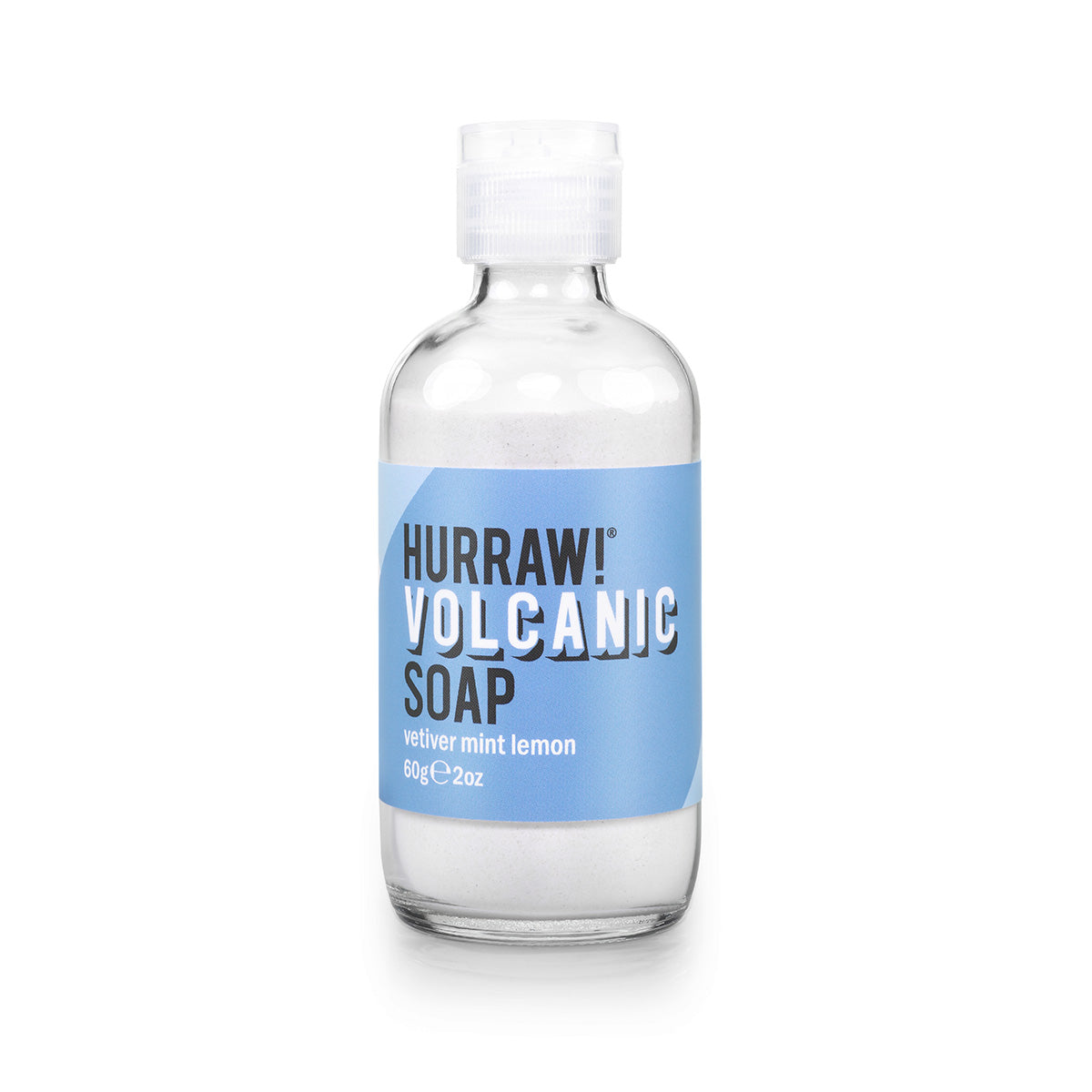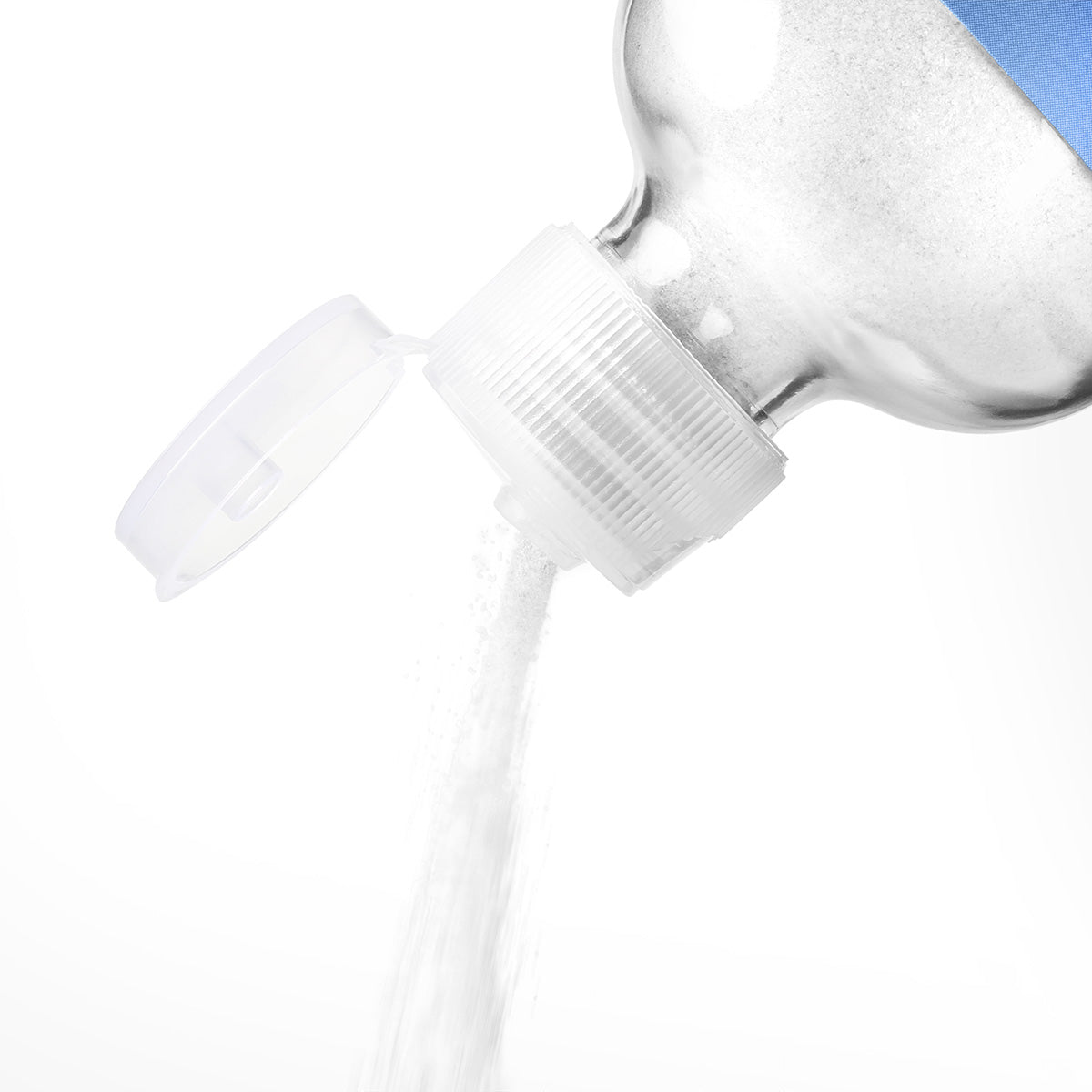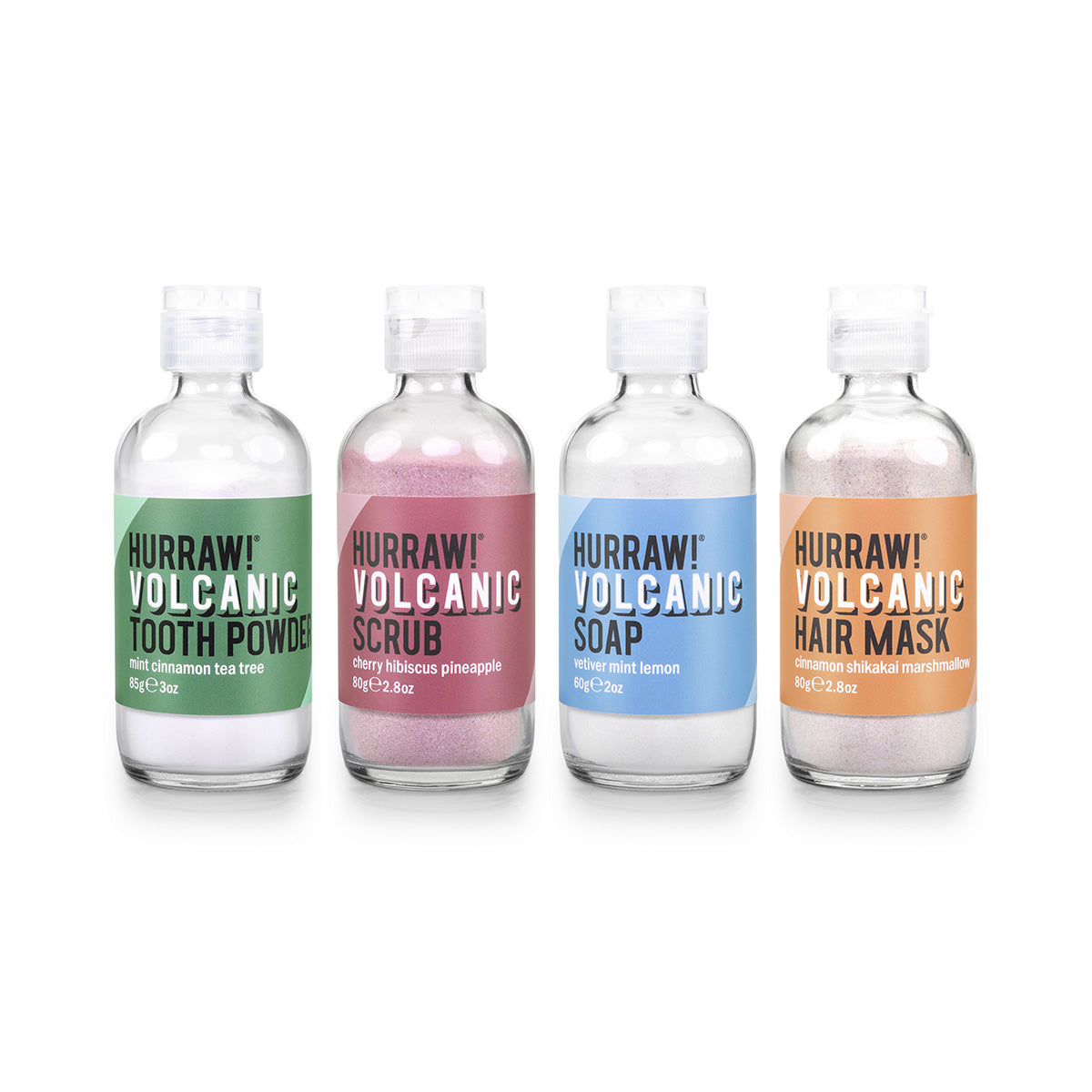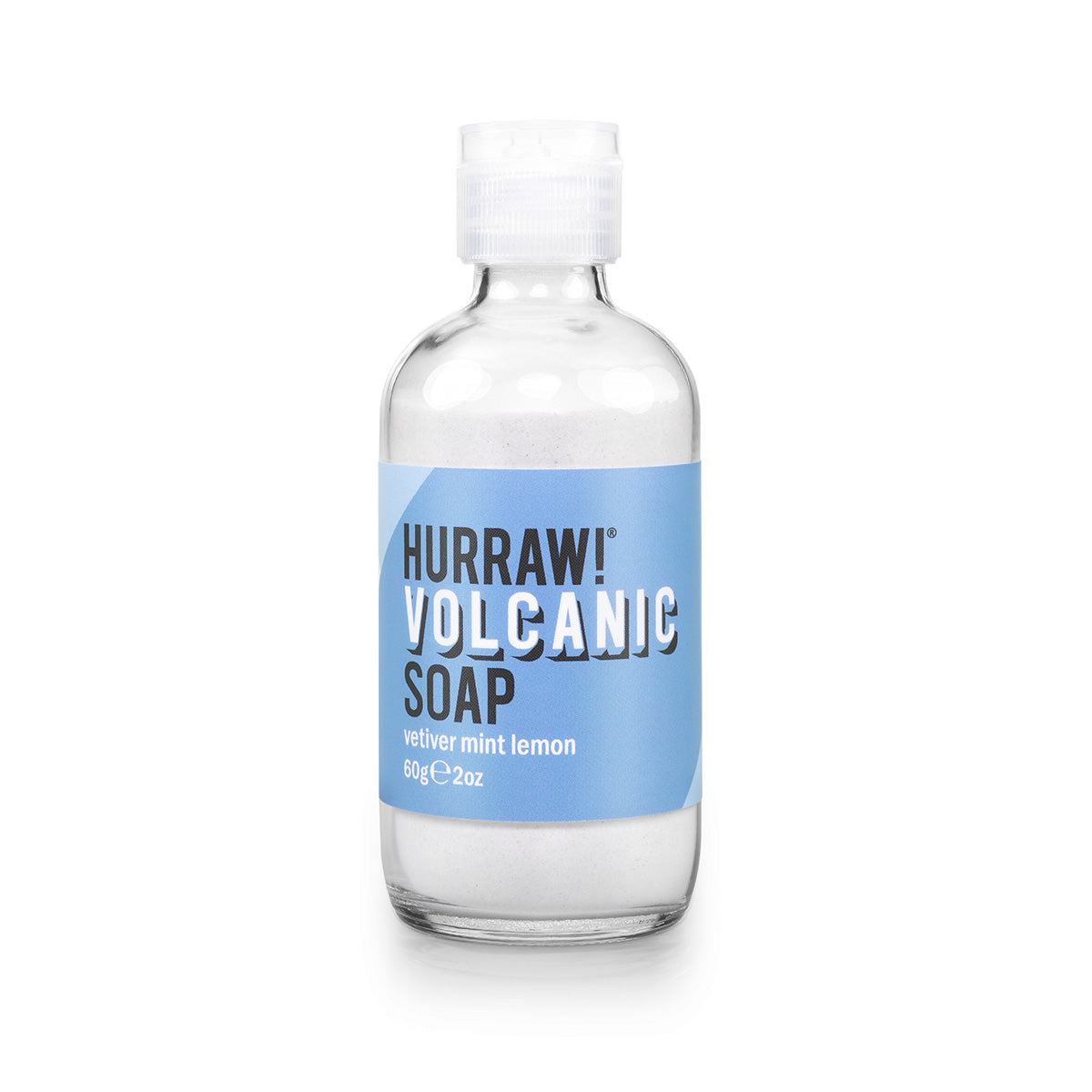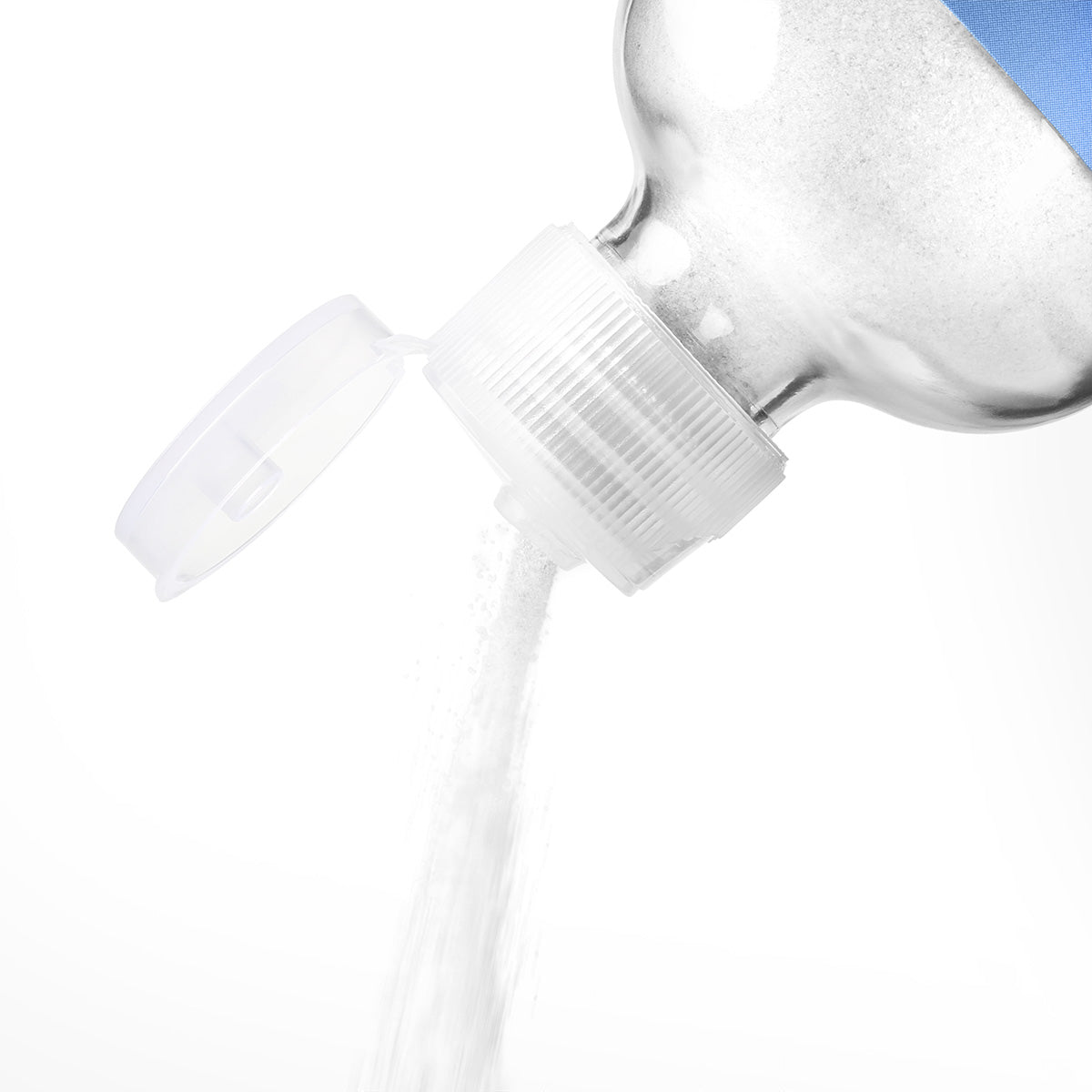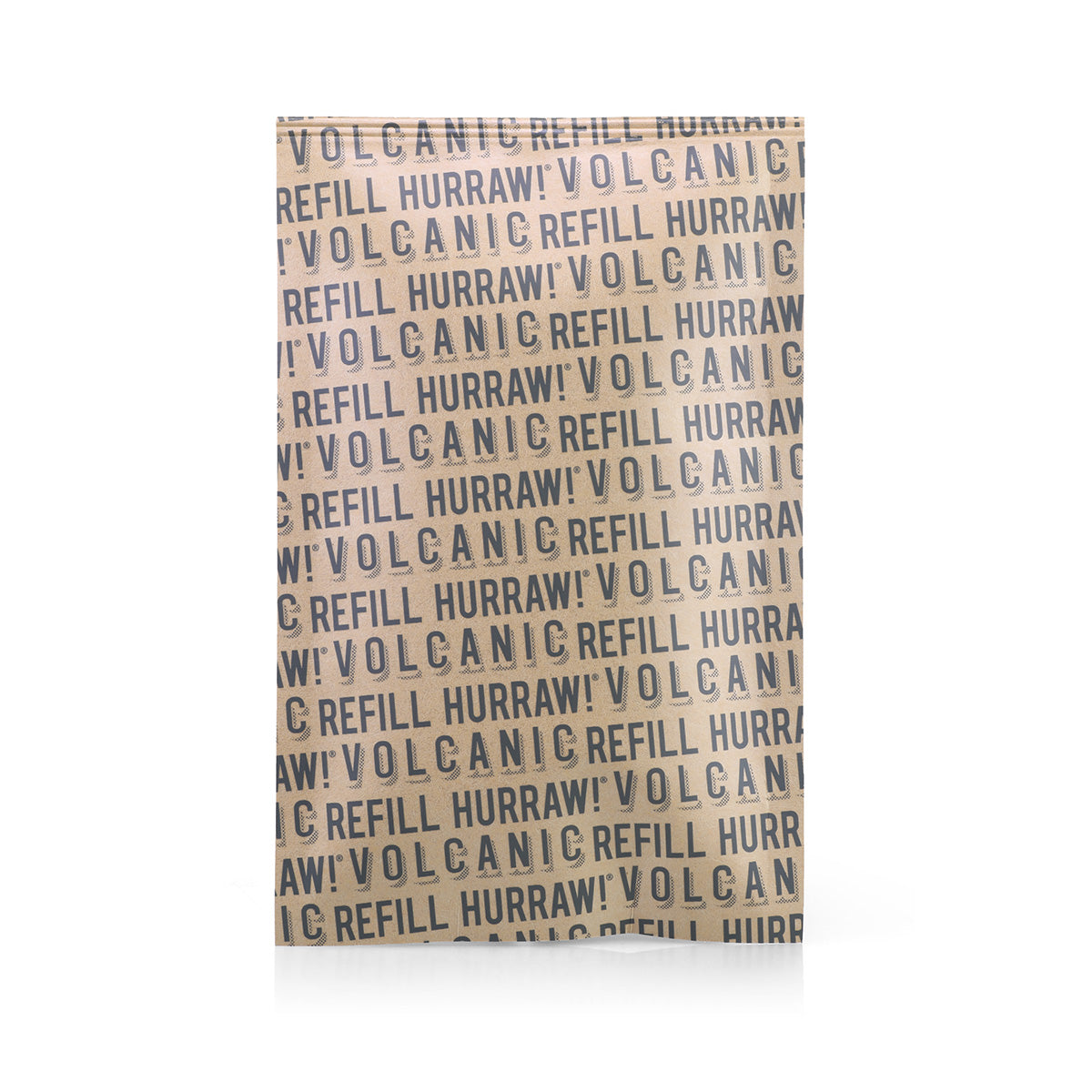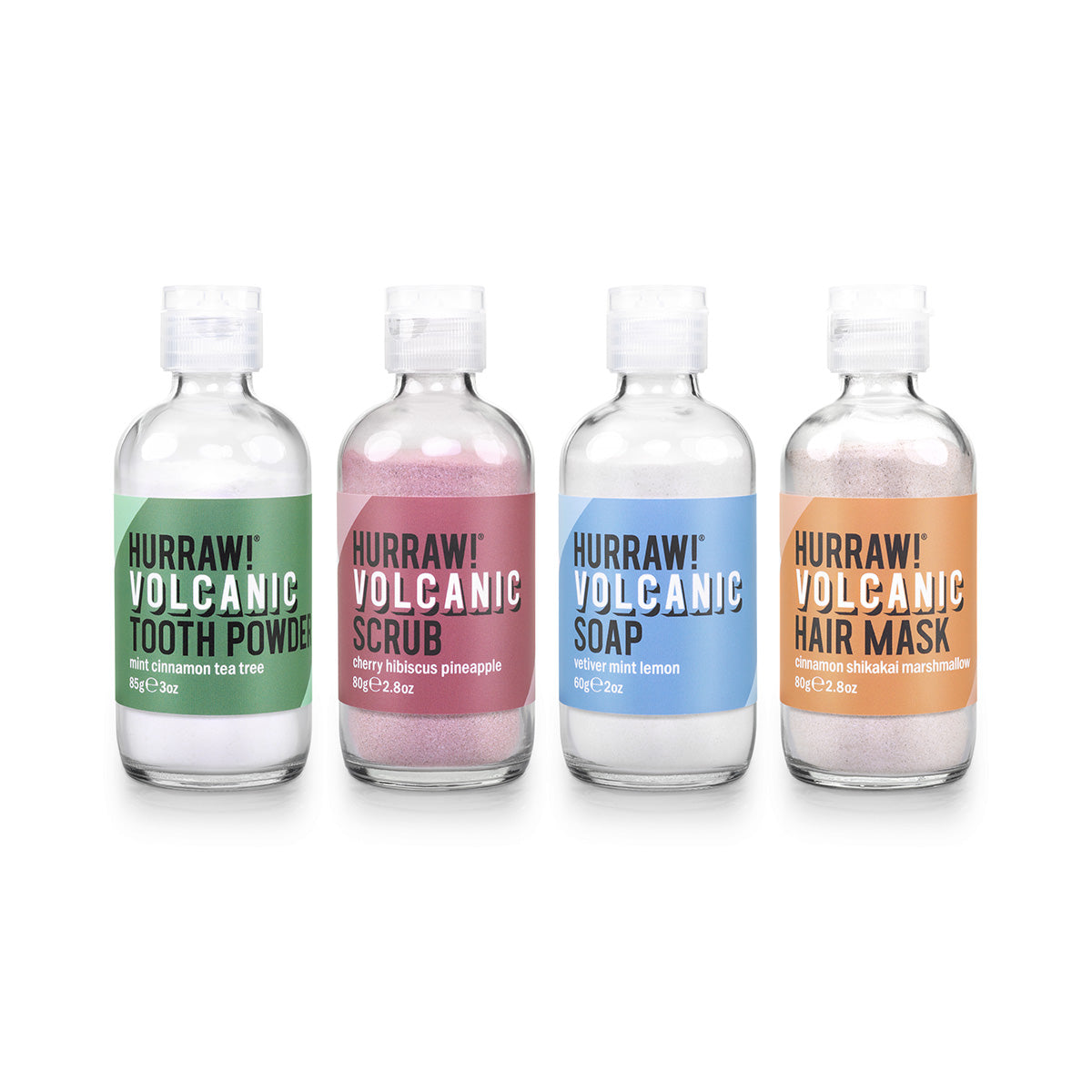Can I really use Volcanic Soap Powder on my face, body and hair?
Yes! Bearer of of bad news: almost all consumer soaps, washes and shampoos are the same thing: 90+% water + binders + preservatives + surfactants + chemical fragrances. It's Mind-Bending-Mad-Men-Don-Draper-Style marketing friends. UGH.
Are sodium coco and cocoyl’s and glutamates and sulfates safe?
We use (truly sourced from coconuts) sodium cocoyl glutamate and sodium coco sulfate in our powdered soap. We use these two surfactants simply because we like a mild yet thorough sudsy-squeaky-clean. They are Ecocert COSMOS approved, biodegradable and proven very safe via rinse-off applications. These coconut surfactants are derived via reactions with glutamic acid (amino acid) and sulfuric acid (mineral acid) from the many fatty acids in coconut oil.
The word "sulfate" (ie: sodium lauryl sulfate) has been demonized when referring to surfactants (and for good reason) but not all sulfites are manufactured the same. For example, it's important that sulfation (at carbon or oxygen atom) is done without use of chlorinated sulfation reagents. Importantly, the surfactants we use are Ecocert COSMOS approved; this simply can not be said by the majority of surfactants used in the personal care and so-many-eyes-rolling-clean-beauty world of today.
The most common personal care SLES, SLS, AOS and APG cleansers found in almost every dish soap, detergent, soap, body wash, baby wash, shampoo being sold today originate from palm, corn (sugar/alcohol) or upstreamed petroleum. Are they bad? Depends.
Many aren’t so great due to residual impurities left from the manufacturing process (contaminants like 1,4-dioxane and irritants like DMAPA). The popular sodium cocoyl isethionate (fatty acid reacted with isethionic acid) used in many solid shampoo bars and the newer AOS’s (alpha olefin sulfonates) are derived via reactions from ethylene oxide (EtO), an odorless and flammable gas produced by cracking either crude oil or natural gas. The FDA classifies EtO as a human carcinogen. The surfactant itself might be ok for rinse-off use but these toxic manufacturing processes are why so many surfactants are not Ecocert COSMOS approved. The majority of the newer “sugar” APG surfactants come from GMO corn stock. Again, the surfactant itself might be ok, but Ecocert COSMOS does not allow GMO feedstocks. At the end of the day, they are all surfactants but this is why the details matter.
If you aren’t into using surfactants, a bar of castile soap is a great alternative to cleanse with! We simply find the leftover film on skin and hair undesirable. Soap film occurs when the ions in water react with the ingredients of the soap and thus, don’t rinse off well.
The question remains: How do we cleanse a planet of billions with honesty, sustainability and safety?
Can I use Volcanic Soap Powder in my hair? What about conditioner?
Yes! We use it daily to cleanse our hair, our face, our body, our hands, etc. Shampoos containing SLS’s and AOS's can be so harsh on the hair that a conditioner must be used. We have found that when using our gentle, moisturizing soap powder we do not need a conditioner. It all depends on your personal preference and your hair type. BALMTOO, a few drops of any plant based oil ("hair oiling ritual"), and of course our VOLCANIC Hair Mask make great conditioners.
Are these powders allowed on airplanes?
Yes! TSA only regulates gels and liquids to less than 3.4 ounces. The limit on powders is 12 ounces. Part of our inspiration to develop the Volcanic line was so one could travel for several months with just a few small 4 ounce bottles of personal care products. It’s time to skip all the single use toxic hotel/motel plastic ridiculousness.
Can I refill my Volcanic bottles?
Yes! All of our VOLCANIC powders are highly concentrated and last 2-6 months per bottle. Our refill pouch is available for refilling. TIP: When refilling VOLCANIC SOAP wear a face mask or scarf; inhaling too much powdered cleansers can be irritating and unpleasant.

